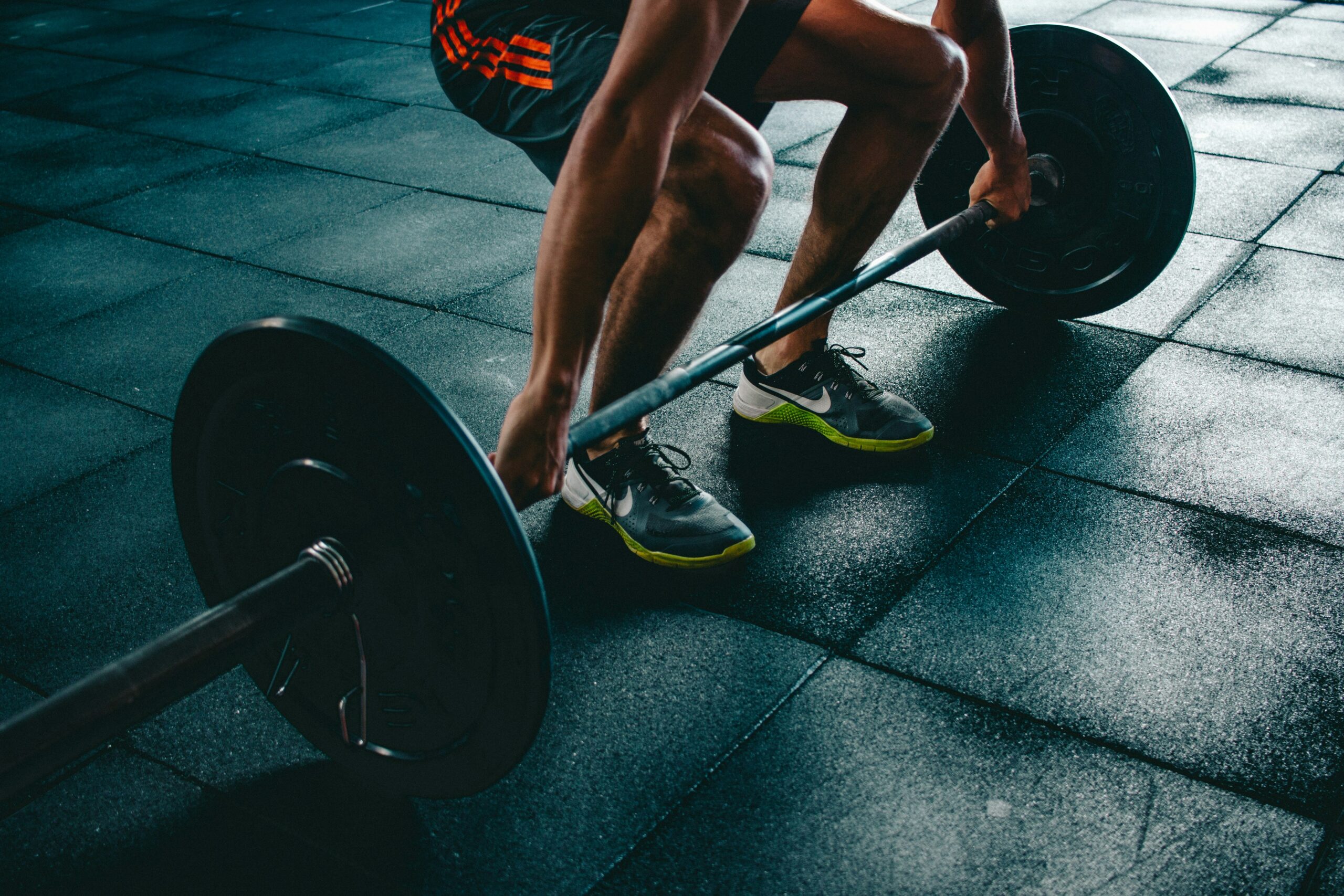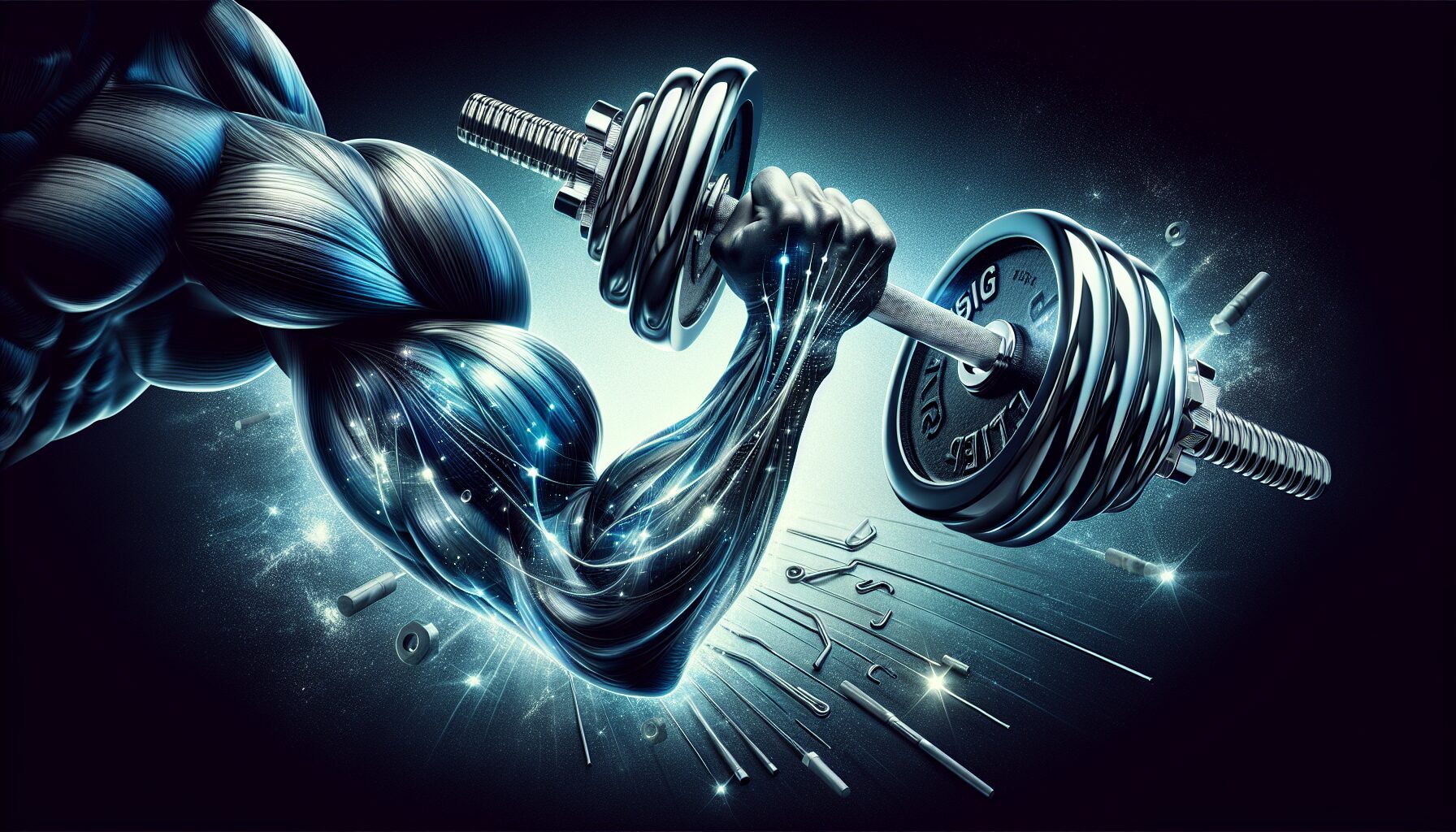Imagine being able to transform your physique and gain muscle in just 15 short days. Sounds too good to be true, right? Well, prepare to be amazed, because in this article, we will explore the possibility of achieving significant muscle gains in such a short span of time. With the right combination of nutrition, exercise, and dedication, you may just find yourself on the fast track to a stronger, more muscular you. So, let’s get started on this exciting journey toward a more confident and sculpted physique!

Factors Affecting Muscle Gain
When it comes to gaining muscle, there are several factors that come into play. While the science behind muscle growth is complex, it is important to understand the key elements that contribute to this process. Nutrition, training, and rest and recovery are three crucial factors that can greatly influence your muscle-building journey.
Nutrition for Muscle Gain
Proper nutrition is essential when it comes to building muscle. In order to promote muscle growth, you need to provide your body with the necessary nutrients and energy. Here are some key aspects of nutrition that you should consider:
Caloric Surplus
To gain muscle, you need to consume more calories than your body burns. This is known as a caloric surplus. By providing your body with excess calories, you are giving it the energy it needs to build and repair muscle tissue. It is important to note that the surplus should be within a reasonable range to avoid excessive fat gain.
Macronutrient Ratio
Along with a caloric surplus, you should also pay attention to your macronutrient ratios. The three main macronutrients are carbohydrates, proteins, and fats. While the optimal ratio may vary depending on individual needs and goals, a typical recommendation for muscle gain is a well-balanced diet with a moderate carbohydrate intake, sufficient protein, and healthy fats.
Protein Intake
Protein plays a critical role in muscle growth and repair. It is recommended to consume an adequate amount of high-quality protein sources to support muscle development. This can include lean meats, poultry, fish, dairy products, eggs, and plant-based protein sources such as legumes, tofu, and quinoa.
Timing of Meals
In addition to the quantity and quality of food, the timing of your meals can also have an impact on muscle gain. It is generally recommended to spread your protein intake evenly throughout the day, as this allows for a consistent supply of amino acids for muscle protein synthesis.
Supplements
While not necessary, certain supplements can be useful for individuals looking to optimize their muscle-building potential. Protein powders, creatine, branched-chain amino acids (BCAAs), beta-alanine, and HMB are some of the popular supplements that can support muscle growth. However, it is important to note that supplements should never replace a well-rounded diet.
Training for Muscle Gain
Proper training is another crucial element in the muscle-building process. Here are some key aspects to consider when it comes to training for muscle gain:
Resistance Training
Resistance training, such as weightlifting or bodyweight exercises, is the cornerstone of muscle growth. Engaging in resistance exercises stimulates your muscles to adapt and grow stronger. Incorporating compound exercises such as squats, deadlifts, bench presses, and pull-ups into your routine can help activate multiple muscle groups simultaneously and promote overall muscle development.
Compound vs. Isolation Exercises
Both compound and isolation exercises have their place in a well-rounded training program. Compound exercises, as mentioned earlier, work multiple muscle groups, whereas isolation exercises focus on a specific muscle group. While compound exercises are generally more effective for overall muscle growth, integrating isolation exercises can help target specific muscles and improve muscle symmetry.
Progressive Overload
Progressive overload is key to stimulating muscle growth. This principle involves gradually increasing the stress placed on your muscles over time. This can be achieved by increasing the weight lifted, the number of repetitions, or the intensity of your workouts. By consistently challenging your muscles, you encourage them to adapt and grow stronger.
Frequency and Volume
Finding the right balance between frequency and volume is important for muscle growth. While it is crucial to provide your muscles with enough stimulus to grow, it is also important to allow sufficient time for recovery. It is generally recommended to train each muscle group two to three times per week, with an appropriate amount of rest between sessions.
Rest and Recovery
Rest and recovery are often overlooked, but they are essential for muscle growth. When you work out, you create micro-tears in your muscles. Rest days allow your body to repair and rebuild these muscles, leading to muscle growth. Additionally, proper sleep and muscle soreness management are crucial for optimal recovery.
Rest and Recovery
Rest and recovery are critical components of any muscle-building journey. Here are some important factors to consider when it comes to rest and recovery:
Sleep
Adequate sleep is crucial for muscle growth and overall health. During sleep, your body releases growth hormone, which aids in muscle repair and recovery. Aim for seven to nine hours of quality sleep per night to optimize muscle-building potential.
Muscle Soreness Management
Muscle soreness, also known as delayed onset muscle soreness (DOMS), is common after intense workouts. While it is a sign that your muscles have been effectively stimulated, it can hinder your ability to perform at your best. Managing muscle soreness through techniques such as light active recovery, foam rolling, and stretching can help alleviate discomfort and improve recovery.
Active Recovery
Active recovery involves engaging in low-impact activities that promote blood flow and support muscle repair. Light cardio exercises, such as walking or swimming, can be beneficial during rest days. Active recovery helps reduce muscle stiffness and enhances overall recovery without overloading your muscles.
Stretching
Incorporating stretching exercises into your routine can help increase flexibility, improve range of motion, and reduce the risk of injuries. Dynamic stretching before a workout and static stretching after a workout can be particularly beneficial for muscle recovery.
Avoid Overtraining
While it may be tempting to push yourself to the limits every day, overtraining can hinder your progress and increase the risk of injuries. It is important to listen to your body and allow yourself sufficient rest to prevent overtraining. Gradually increase the intensity and volume of your workouts, and incorporate regular rest days into your training schedule.

Muscle Building Supplements
While not necessary, certain supplements can potentially support muscle growth and recovery. Here are some popular muscle-building supplements:
Protein Powders
Protein powders, such as whey protein or plant-based protein isolates, are a convenient way to increase your protein intake. They provide a quick and easily digestible source of protein that can help support muscle repair and growth.
Creatine
Creatine is a naturally occurring compound that is stored in your muscles and used for energy production during high-intensity exercise. Supplementing with creatine has been shown to increase muscle strength, power, and lean body mass.
Branched-Chain Amino Acids (BCAAs)
BCAAs are a group of essential amino acids that play a key role in muscle protein synthesis. Supplementing with BCAAs can help reduce muscle breakdown during exercise and promote muscle recovery.
Beta-Alanine
Beta-alanine is an amino acid that can enhance muscular endurance by increasing the levels of carnosine in your muscles. This can delay muscle fatigue and allow you to train at a higher intensity for longer periods.
HMB
HMB, or beta-hydroxy beta-methylbutyrate, is a metabolite of the amino acid leucine. It has been shown to reduce muscle protein breakdown and promote muscle growth, particularly in individuals who are new to resistance training.
It is important to note that supplements should be used as a complement to a balanced diet and proper training routine. Always consult with a healthcare professional before starting any new supplements.
Genetic Predisposition
Genetics can play a role in determining your muscle-building potential. Here are some genetic factors that may affect muscle gain:
Muscle Fiber Type
There are two main types of muscle fibers: slow-twitch (Type I) and fast-twitch (Type II). Fast-twitch fibers have a greater potential for muscle growth and strength. However, individuals with a higher proportion of slow-twitch fibers may excel in endurance activities.
Hormone Levels
Hormones such as testosterone, growth hormone, and insulin-like growth factor (IGF-1) play a significant role in muscle growth. Genetic factors can influence the levels of these hormones, thus affecting an individual’s muscle-building potential.
Metabolism
Metabolism refers to the rate at which your body converts food into energy. Genetic factors can influence metabolic rates and nutrient utilization, which can impact muscle gain.
Response to Exercise
Individuals may vary in their response to exercise due to genetic factors. Some individuals may experience faster muscle growth and strength gains compared to others, even with the same training and nutrition strategies.
While genetics can influence muscle-building potential, it is important to remember that hard work, proper nutrition, and consistent training can still lead to significant muscle gains for individuals of all genetic backgrounds.

Prior Fitness Level
Your prior fitness level can also influence your muscle-building journey. Here are some considerations for different levels of fitness:
Untrained Individuals
If you are new to resistance training or have been inactive for a long period, you may experience rapid initial gains in muscle strength and size. This is often referred to as newbie gains. As a beginner, your body is not accustomed to the stress placed on the muscles, allowing for faster adaptations and muscle growth.
Experienced Weightlifters
Experienced weightlifters may experience slower muscle growth compared to beginners. As you progress in your training, it becomes increasingly challenging to stimulate the muscles to grow. However, with proper programming and variations in training, experienced weightlifters can continue to make progress and achieve further muscle gains.
Strength Athletes
Strength athletes, such as powerlifters or strongman competitors, prioritize strength and muscle size for their respective sports. These athletes often have a high level of training experience and focus on specific exercises and training techniques to maximize muscle growth and strength.
Regardless of your prior fitness level, it is important to have a structured training program that aligns with your goals and to continually challenge yourself to make progress.
Muscle Gain Expectations
It is important to have realistic expectations when it comes to muscle gain. Here are some factors to consider:
Individual Variations
Every individual is unique, and genetics, age, gender, and other factors can influence the rate of muscle growth. While some individuals may experience rapid gains, others may progress more slowly. It is important to focus on your own progress and not compare yourself to others.
Rate of Muscle Growth
The rate at which you can gain muscle will vary depending on several factors, including your training program, nutrition, rest, and recovery. Generally, beginners can expect to gain muscle at a faster rate compared to experienced weightlifters. On average, individuals can aim to gain 0.5 to 1 pound of muscle per month with consistent effort.
Visible Changes in 15 Days
While it is unlikely to see significant muscle gains in just 15 days, you may notice some subtle changes. Increased strength, improved muscle definition, and a slight increase in muscle size may be observed. However, long-term commitment and consistency are necessary to achieve substantial muscle growth and development.

Risks and Safety Precautions
When engaging in a muscle-building journey, it is important to prioritize safety and take certain precautions. Here are some considerations:
Consulting with a Professional
Before starting any new training or nutrition program, it is recommended to consult with a qualified fitness professional or a healthcare provider. They can assess your current fitness level, provide personalized advice, and ensure that you are following a safe and effective approach.
Avoiding Overtraining
As mentioned earlier, overtraining can hinder progress and increase the risk of injuries. It is important to listen to your body and allow for adequate rest and recovery. Gradually progress your training intensity and volume while giving your muscles sufficient time to repair and grow.
Monitoring for Injuries
Muscle strains, tendinitis, and other injuries can occur during intense training. It is important to listen to your body and address any signs of pain or discomfort. Incorporating proper warm-up routines, using proper form during exercises, and gradually increasing intensity can help reduce the risk of injuries.
Remember, your health and safety should always be the top priority when pursuing any fitness or muscle-building goals.
Conclusion
Gaining muscle is a complex process that involves various factors, including nutrition, training, rest, genetics, prior fitness level, and personal expectations. By understanding and implementing the principles discussed in this article, you can optimize your muscle-building potential and work towards achieving your goals. Remember to be patient, stay consistent, and enjoy the journey of building a strong and healthy body.



